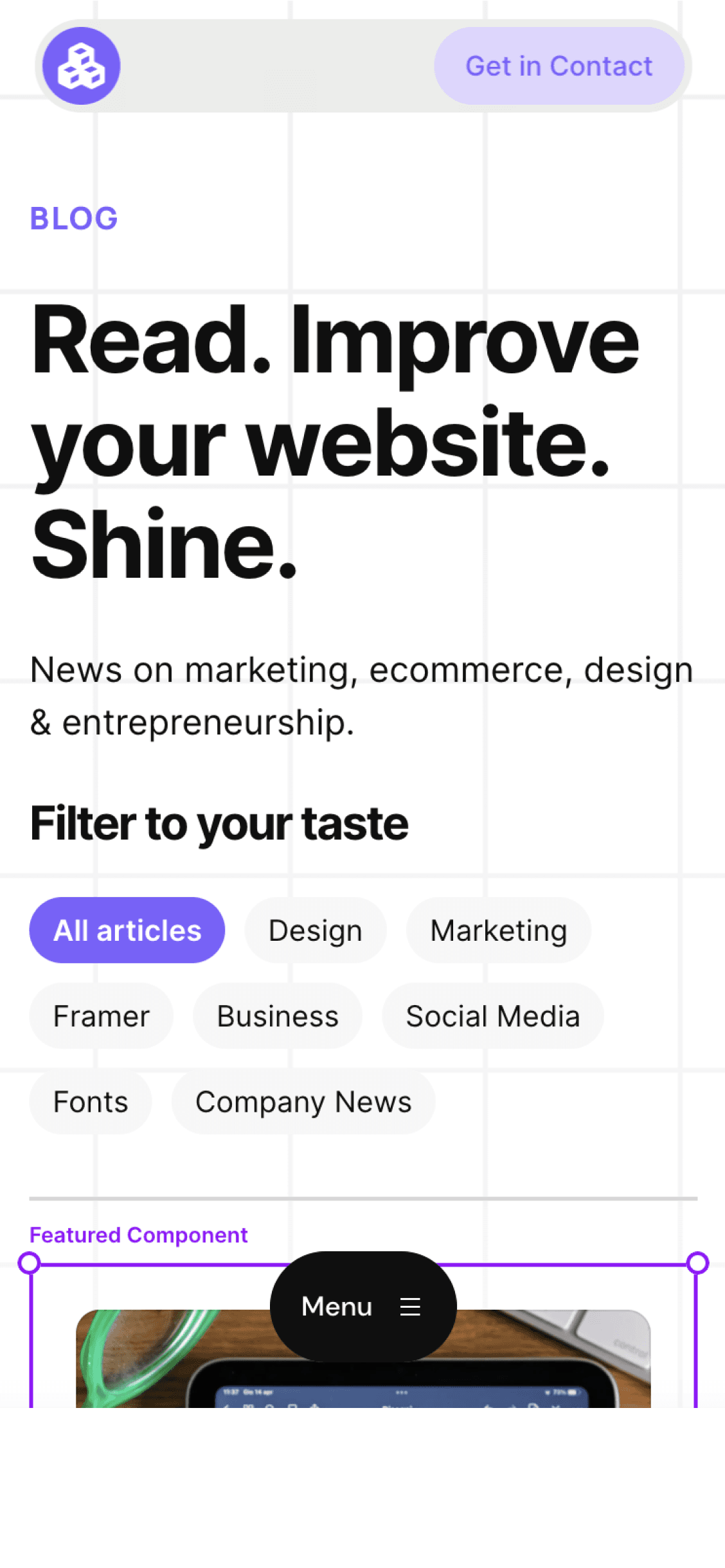All articles
Essential web design principles that every designer should know
Web design is not just about making a website look good, but it's also about creating an engaging and user-friendly experience for the audience. It involves a lot of planning, research, and execution to create a website that meets the goals of the organization while also fulfilling the needs of the target audience. In this article, we will discuss 15 essential web design principles that every designer should know to create effective websites.
6
min read
Jan 16, 2024
Subscribe Wrapper
Get notified whenever we post a new blog
Learn more about writers' expertise on web design, web development, SEO, tools and much more!
Get Notified
Share our blog on your socials. Let people know!
In the ever-evolving landscape of web design, staying ahead of the curve is not just an advantage but a necessity. Every designer worth their pixels understands the significance of creating an online presence that not only captivates but also functions seamlessly. Let's delve into the essential web design principles that every designer should know, exploring the art and science behind crafting compelling digital experiences.
Understanding the core elements
The foundation of design
At the heart of web design lies the foundation – a harmonious blend of layout, color, and typography. The H1 heading sets the tone for the entire website, creating the first impression that lasts.
Responsive design for every device
With the surge in mobile usage, responsive design has become non-negotiable. Crafting a website that adapts seamlessly to various devices ensures an optimal user experience, a critical factor in today's digital era.
Navigating user experience
Intuitive bavigation
User experience hinges on navigation. An intuitive menu structure ensures that visitors can effortlessly explore your site, finding what they need without feeling lost in the digital wilderness.
Faster load times
In the age of impatience, slow-loading websites are a deal-breaker. Optimize images, leverage browser caching, and minimize HTTP requests to create a website that loads at lightning speed.
Embracing visual appeal
Striking visuals and graphics
The saying, "A picture is worth a thousand words," holds true in web design. Incorporating high-quality visuals and graphics elevates the aesthetics of your website, leaving a lasting visual impact.
Consistent branding
Maintain consistency in branding elements, including color schemes, logos, and fonts. Branding cohesion fosters trust and recognition, crucial for establishing a strong online presence.
Prioritizing accessibility
Inclusive design
A website should be accessible to everyone, regardless of abilities. Implementing inclusive design principles ensures that your website is user-friendly for individuals with disabilities, creating a more inclusive online space.
SEO-friendly practices
Crafting content that is not only appealing to users but also search engines is imperative. Utilize SEO-friendly practices, including strategic keyword placement, to enhance your website's visibility on search engine result pages.
Concluding thoughts
In conclusion, mastering the essential web design principles is akin to wielding the artist's brush on the canvas of the digital realm. From foundational elements to user experience and visual appeal, every aspect plays a crucial role in creating a website that stands out in the vast online landscape.
Frequently Asked Questions (FAQs)
How important is mobile responsiveness in web design?
Mobile responsiveness is paramount in today's digital landscape. With an increasing number of users accessing websites through mobile devices, ensuring a seamless experience across various screen sizes is non-negotiable.
Why is SEO crucial for web design?
SEO enhances a website's visibility on search engines, driving organic traffic. Incorporating SEO-friendly practices in web design ensures that your digital masterpiece gets the attention it deserves.
What role does branding consistency play in user trust?
Consistent branding elements instill trust and recognition. When users encounter familiar branding across your website, it creates a sense of reliability and professionalism.
How can inclusive design benefit my website?
Inclusive design ensures that your website is accessible to a diverse audience, including individuals with disabilities. This not only expands your reach but also reflects a commitment to inclusivity.
Why is page loading speed crucial for user satisfaction?
In the age of instant gratification, users expect websites to load quickly. Optimizing load times enhances user satisfaction, reduces bounce rates, and positively impacts search engine rankings.
Subscribe to our newsletter
Learn more about writers' expertise on web design, web development, SEO, tools and much more!
We care about your data in our privacy policy.

Cédric subscribed to the newsletter! 🎉
Welcome to the Welleton Digital Agency blog!
Michiel just posted 2 blogs about marketing & design.
Thanks for sharing the blog with your friends!



